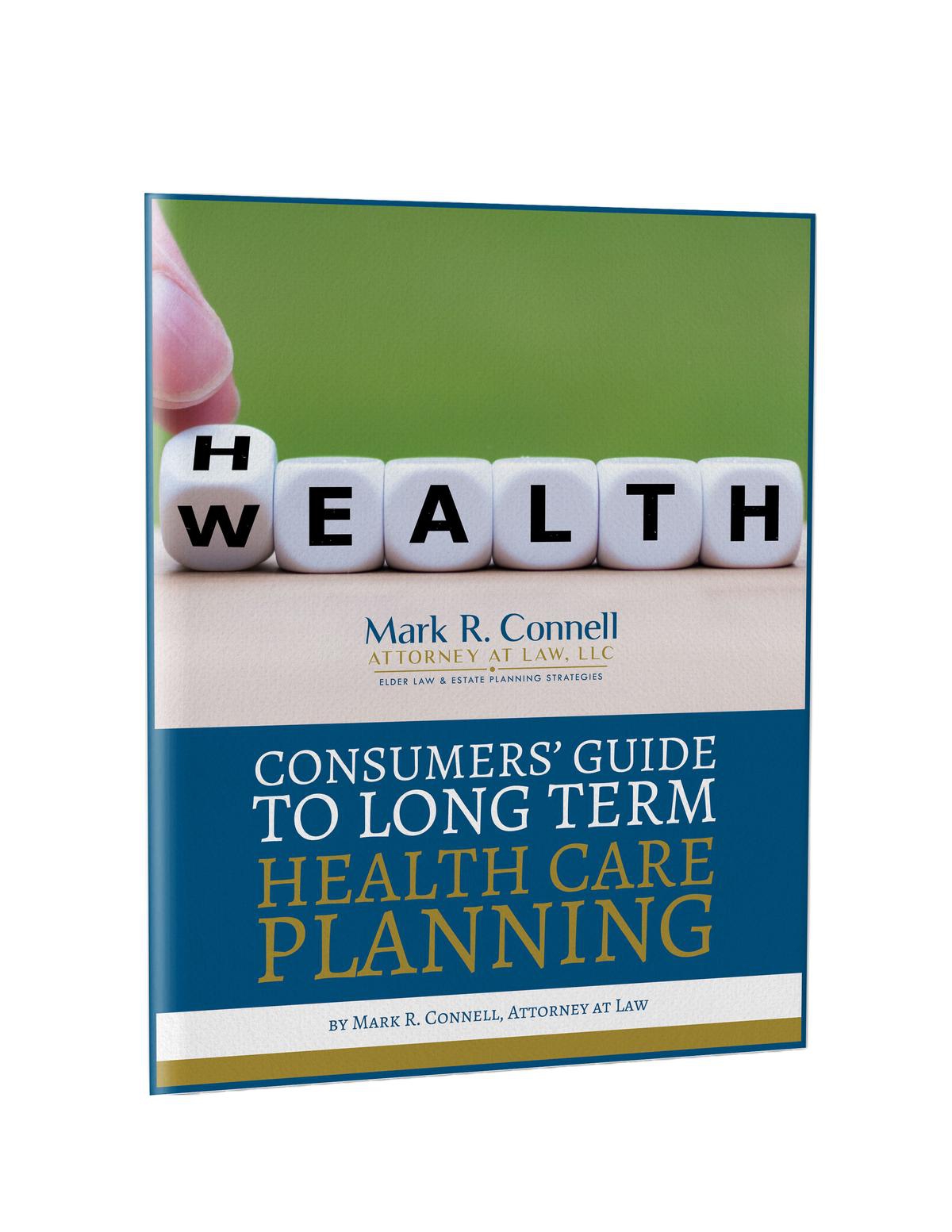
Americans are living longer than ever, but at a certain point, it becomes difficult for the elderly to care for themselves. Several options may be available for long-term care, including having a healthcare worker visit the home, moving into an assisted living facility, or, ultimately, moving into a nursing home. However, while you may have options, you will still have to figure out how to pay for it without going broke. In our Consumers’ Guide to Long-Term Health Care Planning, our experienced elder law attorney provides valuable information on how to plan for and pay for long-term care in Connecticut.
Get the Answers You Need With This Free Guide
When a loved one becomes physically disabled or mentally incompetent, you may have no other option than to move them into a nursing home. These facilities are expensive—some cost as much as $6000 a month!—and you will have to find a way to pay for it. In this free handy guide, elder law attorney Mark R. Connell discusses the four ways most people pay for long term care, providing pros and cons of each plan. Those options are:
- Long term care insurance. If you planned ahead and got insurance, you could be in good shape. If you are looking to purchase a plan now, Mark offers advice on how to choose one.
- Your own money. Mark may be able to help you stretch your savings and income to get the most value as you pay for care.
- Medicare. Medicare offers very limited coverage for long-term care. Mark explains those limits and provides alternatives.
- Medicaid. The bulk of this consumer guide explains how people can qualify for Medicaid to pay for a nursing home, providing various case studies to illustrate the options.
With the information provided in this book, you will have a much better idea of how to tackle the high cost of the care your loved one needs.
Request Your Free Booklet Today!
This booklet gives you examples from our client files to show you the various issues surrounding long term health care planning. Here, through a case-study approach, you will see the alternatives and options for longevity planning to protect your assets. If you need help with any of these tasks, please contact our Branford, Connecticut, office.
